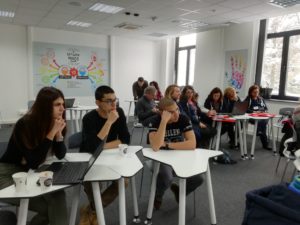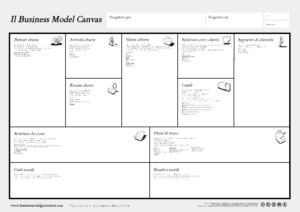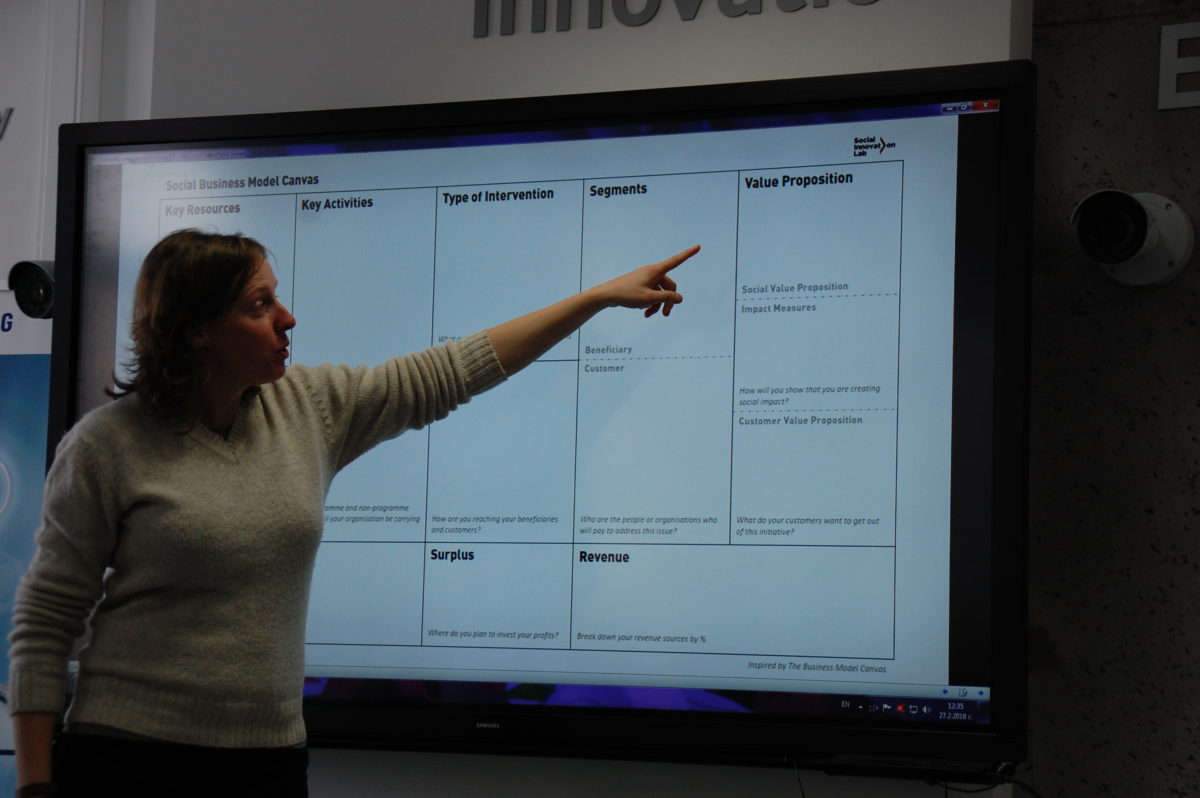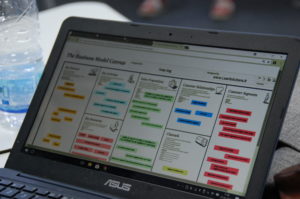In the last week of February 2018 the penultimate mobility of the Erasmus + G.R.E.E.N. in Europe took place in the city of Sofia in Bulgaria.

In this period, principals and teachers participated in a short but intense training at the headquarters of the Junior Achievement of Sofia dedicated to economic-entrepreneurial education at school. We talked about Business Plan and Sustainable Development. In particular, all teachers had the opportunity to know a model, properly a canvas, on which they can test the business models in the first phase conception. This is called the Business Model Canvas and is a useful tool to start talking about entrepreneurship since the early years of secondary school.
“Business Model Canvas is a visual chart with elements describing a firm’s or product’s value proposition, infrastructure, customers, and finances.”
“The Business Model Canvas was initially proposed by Alexander Osterwalder.Since the release of Osterwalder’s work in 2008, the new canvases for specific niches have appeared. “
Source Wikipedia – https://en.wikipedia.org/wiki/Business_Model_Canvas
One of these is the dedicated canvas for non-profit businesses, useful for testing sustainable business models. All these tools can be used without any copyright problems as long as the source is mentioned (Creative Commons license).
Vera Petkantchin and Kirilka Angelova are the Junior Achievement experts who have explained how the Business Model Canvas works.
Below you will find links to useful resources for deepening the topic:
the-business-model-canvas-instruction-manual
https://strategyzer.com/canvas/business-model-canvas

This model is very useful for introducing the basic concepts on which a business is based, even in the first grade of school.
We ourselves have tested the model in a practical activity of great interest.
The Junior Achievement in Sofia organized a Challenge. Groups of teachers participating in the ERASMUS + project, together with several students of a high school in Turin (present in Sofia to carry out an educational project, financed by the European Community, in the entrepreneurial field) collaborated to find a business model on a specific topic. The theme, proposed by the Municipality of Sofia, was that of public mobility and atmospheric pollution due to private mobility.

The phases of the Challenge:
- Organization of groups (possibly no more than 6 members)
- Delivery of the theme and copies of the Business Model Canvas (for both private and non-profit activities).
- Group discussion with the possibility of using any source of inspiration (books, magazines, web searches)
- Schematic development of the business model
- Presentation of the model to all the participants and to the jury
In this case the models were evaluated and commented by a person in charge of the Sofia Mobility Department.
Below you will find the link to the theme of the Challenge and some elaborate made on that occasion.
IC Renato Moro Italy – Innovation Challenge 2008
The Business Model Canvas is useful in the educational field also to reconstruct the business model of existing economic activities.
It was a wonderful experience and very useful for all of us.



